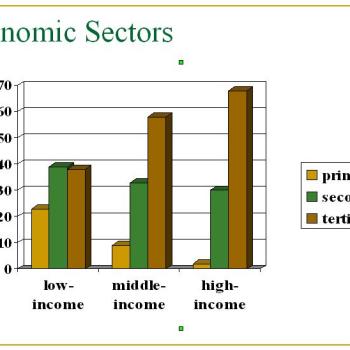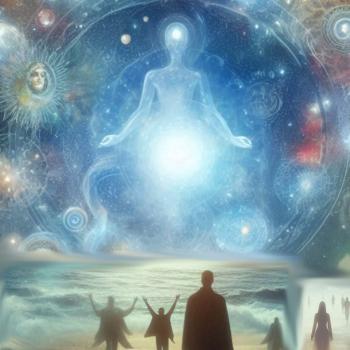Things that really upset me, and things we need to improve
I look around me and the world is on fire with rage against everything. The lack of money is at the root of much of it. The less we understand those different from ourselves, the more easily fear and condemnation take root. What makes so many people seem callous and uncaring towards others? Have they truly bought into this ‘dog eat dog’ world concept?
It’s disheartening to see how many people have such a negative view, even a fearful one, of a higher power, believing we’re all inherently bad and condemned.
But let me assure you: the world, despite its challenges, is a better place than it has ever been. You are not inherently ‘bad to the bone’ or out of favor with a higher power, but we should always evaluate our behavior. And importantly, we absolutely have the capacity to create a much better world for everyone.
Podcast show links with added content: Substack, YouTube video, Spotify, and Apple podcasts. These appear a day after blog-article posts.

Ref. verses
Summarizing Jesus’ teachings about money:
- You can’t serve two masters. If you do, you will end up hating one of them.
- It’s easier for a camel to go through the eye of a needle than for a rich man to enter heaven, although all things are possible with God.
- Money is temporary. You can’t take it with you.
- Wealth should be shared with the needy, not hoarded.
- We should be good stewards of our money or talents and invest them, not hoard them.
- Where your treasure is, that is where your heart is.
Reference verses: Matthew 6:19–21, Matthew 6:21, Matthew 6:24, Mathew 19:23-24, Matthew 6:1-4, Luke 14:12-14, Acts 20:35, and Matthew 25:14-30.
Money is not a bad thing. The love of it, and valuing it over others is. It’s what we do with it that matters.
You are worthy of the spiritual domain of God
We are our own worst enemy. Well, certain teachings may be our worst enemy. The apostles of Jesus teach that our sin, separating us from God, makes us worthy of death. “Say it ain’t so!”
God puts on big boy pants every day. He doesn’t take affront at our childish ways. The ancient Jews had an annual day of atonement during which they would make sacrifices at the Temple for their sins against God. Somehow they lived through the entire year.
As Christians, we don’t make sacrifices. We simply ask God for forgiveness, while attempting to be better.
It was much more important in Judaism how they treated each other. If they offended or hurt someone, then they were to go to that person and make it right. We must all do this. I don’t like doing it, so I try not to offend or hurt anyone and make sure they don’t feel offended. Usually. I’m far from perfect.
When we recognize our guilt from having harmed others, it makes us feel shame. Shame is destructive. Shame can drag us into a downward spiral of ruined relationships, make us feel unworthy, and ruin our lives. We die. It may be death by a thousand cuts.
There is only one unforgivable sin. That is refusing to change our ways. Thumbing our nose at the way God advises us to live by not hurting others. That sends us away from God. That is a self-created barrier between the person and God. God can’t forgive when forgiveness is not asked for.
When we make things as right as we can with others, and with God, we are forgiven and worthy of the spiritual Domain (kingdom) of God. We are firmly in it, and it’s a place for us to grow and flourish. It’s Jesus’ promise of “living abundantly.”
Guilt is something we recognize in doing something wrong. Shame only applies when we fail to change our way of life and make things right with others. Once we do these things, we are fully worthy. God has no memory of the bad things we’ve done when we make it right. We can stop being our own worst judge.
But are there things that make us unworthy, such as continuing to hurt others?
Unworthy economics
Capitalism is a strong improvement over socialism. Its known benefits include competition, which drives better customer service, improves products, and lowers prices. People are rewarded for individual initiative. This profoundly benefits living standards, and these methods have even been incorporated into communist-socialist economies to improve them dramatically. (If you are interested in this subject, you might want to read the book, The Commanding Heights, by Daniel Yergin and Joseph Stanislaw.)
The downsides of capitalism are we are held hostage to money, and many are deprived or ruined by it for no good reason. And major parts of the economy are not part of the benefit package of capitalism.
For example, rural hospitals close because they are economically unviable, depriving rural areas of medical care. It’s the same for some hospitals in economically deprived city areas. What if their funding were consistent across the board? Same for schools? Same for city water supplies? Same for jobs? Could we make this happen without destroying anything? Yes!
We don’t understand the role of business and our economy so we focus on the wrong things. Major corporations are net job destroyers. They help us very little. Mid-sized companies usually strive to hold their market position and don’t aim for growth, so they employ few. Small entrepreneurial companies are the ones who help the economy through hiring and sales.
Yet the government often works to shore up major corporations through tax breaks and other incentives. For what? Investor greed? Who benefits?
Let me explain how capitalism and the economy work
Capitalism isn’t sacrosanct, and doesn’t occur naturally. It’s a system we created and control. It’s up to us to make it work for everyone. There is no such thing as “pure” markets or pure capitalism. It’s highly regulated, mostly for business success. Consumer protection is an afterthought at best, and the enemy of many politicians who favor business.
Capitalism leaves people out. It’s subject to manipulation that makes those who don’t work very wealthy by gaining wealth by “rent.” Rent, in this sense, is interest on money loaned. This system takes consumer spending, which drives the economy, moving money from the poor and middle class to the wealthy, mostly through the stock market. It amplifies wealth while doing little for those in lower financial classes.
The wealthy don’t spend most of their money; they just reinvest it in stocks so it is effectively removed from the economy. Let me say that again: money removed from the economy.
The invented role of the stock market
Do we need a stock market?
- The first role of the stock market in our economy is to crash the economy, causing major suffering. In just this century, it caused the Dot Com crisis, contributed to the mortgage-industry-gambling-driven Great Recession, responded negatively to Covid, and has partly driven high inflation. During all these times, many companies and investors made huge profits while people suffered greatly, losing their incomes, homes, and even families.
- The second role is to push companies to merge, cut staff, forego training and product research, and raise prices to increase profits. Driving increased profits is the primary way money is moved from the poor and middle class through companies to investors.
- The third role is as a wealth-creating machine for investors.
- The fourth role is to fund retirement accounts, and
- The fifth role is to help fund startups, which banks ignore.
Businesses and corporations don’t need stock funding. They can get funding through banks without all the pressure and negative consequences. Investors can invest in banks instead, and this benefits them because loans get paid off while investment goes on forever.
We need to diminish the role of the stock market and make it serve a primary purpose of enriching the lives of all. This can be done through extended participatory capitalism in which everyone is invested.
Note: Participatory capitalism is an economic system where power and economic rewards are distributed among all participants, not just those at the top. It emphasizes employee ownership, open book management, and involving people in shaping future progress. This concept aims to address economic disparity and empower individuals to benefit from the system.
The National Debt and Balance of Trade
The reality is, these are not very important. The debt adds interest payments to the budget, and this is corrosive, but this can be resolved over a period of time. Both the National Debt and Balance of Trade are financed by investors. These are primarily retirement funds and other low-interest investments.
The economy isn’t a pie for division
The US economy isn’t like a family budget. A family budget is limited, with a fixed amount of money coming in and a corresponding amount going out, leaving a certain amount of spendable income to be allocated among various needs. This allocation can be thought of as dividing a “pie.”
However, the US economy is what I would term “expansive.” While there are certainly temporary limitations and periods of constraint, the fundamental nature of the economy isn’t that of a fixed pie to be divided at a single point in time. Instead, the “pie” is constantly being created and can grow.
The flow of money through the economy generates a certain amount of excess that is available for spending. The banking system plays a significant role by creating multipliers of at least 6x through loans and subsequent redeposits, substantially increasing the money supply. Furthermore, spending between individuals and at local businesses acts as another multiplier, as each dollar spent is often re-spent multiple times within the economy.
Consumer spending, which forms the foundation of the economy, and consequently drives business-to-business spending, is a primary engine of economic prosperity for everyone. However, this driver is often hindered by the stock market’s focus.
We need to re-evaluate the role of businesses and the stock market so that their primary objective shifts towards the well-being of communities and individuals, recognizing them as primary stakeholders rather than secondary considerations.
I could elaborate further on the intricacies of how the economic system operates, but I suspect I may have already lost some readers, as economics can be a challenging subject to grasp.
The callousness of economics
It sounds good on paper to say everyone should be an individual, pulling themselves up by their bootstraps. But what we actually have is a system where money calls all the shots. People? They often don’t even factor into the equation. For a lot of businesses, the bottom line is all that matters. What happens to folks along the way is often just seen as collateral damage.
We really need to ditch some of these old economic ideas. Take that “dog eat dog” thing – it’s been around forever, but it really took off in the 1900s.
The impact of dog eat dog
Shapes Perception: It paints a picture of the world or a specific domain (like business) as inherently brutal, selfish, and lacking in empathy or cooperation.
Justifies Behavior: For some, it serves as a justification for acting ruthlessly or unethically, under the belief that such behavior is necessary for survival and success because everyone else is doing it.
Erodes Trust: The widespread belief in a “dog eat dog” world can make people more suspicious of others’ motives, hindering collaboration and trust.
Increases Stress and Cynicism: Adopting this viewpoint can lead to higher stress levels and a cynical outlook on human nature and societal structures.
Focus on Individualism vs. Cooperation: It emphasizes individual survival and competition over collective well-being or the benefits of cooperation.
Essentially, the phrase is more than just a description; it’s a pervasive metaphor that influences mindset, behavior, and the perceived ethical landscape of competition in many areas of life.
This summary of the corrosive influence of dog eat dog was collected by AI from the world’s knowledge. See: Survival of the Best Fitted, and Dog Eat Dog on Wiktionary, among other places.
Make dog eat dog stop! It’s very destructive
Some of my time and interest go into learning about and finding ways to change our economy in positive ways so that it works for everyone. It challenges the ridiculous notion that dividing the pie makes us all poorer. Actually, the opposite is true: boosting spending among lower income brackets benefits everyone. But why do we fall for this lie? Often, it’s simply because we don’t fully grasp how the economy works. and look out for our own interests.
One solution I’ve researched is taxing stock market trades. Of course traders scream and make threats. Just a tiny tax – a couple of pennies on average trades of $50 or more – could pay off the national debt in just ten years. This small fraction would likely be imperceptible to most investors. This is a policy that could bring significant benefits to economies worldwide, and if all countries implemented it, this would prevent investors from going to markets that don’t.
And here’s another thought: increasing that tax by just a few more pennies–still hardly noticeable–could cover a significant portion of healthcare costs for those who struggle.
There are many small changes we can make to our economy that hurt no one but vastly improve the situations of those who work hard for their living wages. Healthcare insurance and retirement investment are some areas that need strengthened.
those who profit excessively from “rent-seeking” through investments should be limited. We have the power to shape our economy. It’s time we did.
Bad politics
I grit my teeth when I hear the president say, “Make America rich!” The US is already the wealthiest country globally. How much more do we need? Gold embossed buildings? Gold embossed toilets? These ring hollow in the face of widespread hardship. So, how much more accumulation is necessary when there’s so much unmet need around us?
How can we possibly justify further enriching the already wealthy when that wealth is often generated by systems that take money, or underpay, or disadvantage those with the greatest need?
Many have the perception that we are not well off because we are constantly robbed or put in low financial positions by the economic system. Yet we are vastly better off than most developing countries.
We don’t need tariffs. We benefit from what other countries can fairly trade with us. If they have lower wages in their country, that benefits us by lowering our prices, and in exchange we fairly trade things that we export like intellectual property. It’s trade. It’s fair trade. The trade deficit matters very little.
We can raise world wealth. Doing so will increase all of our wealth. We need to think in those terms and stop fuming and outraging about nonexistent or small problems. Helping other countries grow wealthier creates new markets for us, increasing demand for exports.
Many economists look at trade deficits this way
When a country has a trade deficit (imports more than it exports), it often means that foreign investors are sending money into the country to invest in businesses, factories, and other assets. Economists sometimes view this as a sign of a healthy economy that attracts foreign investment. As the Cato Institute blog notes, “when investing is included in the economic picture… the existence of a trade deficit signals neither decline nor imbalance.”
The World Economic Forum explains that trade deficits can reflect efficient borrowing and lending across the globe. Money from abroad can help American businesses expand and create jobs.
Trade allows countries to specialize in producing goods and services they can make most efficiently. This specialization and trade can lead to lower prices and a wider variety of goods for consumers.
A growing economy often leads to a larger trade deficit because consumers have more income to buy goods from abroad, as the Council on Foreign Relations points out.
Focusing on individual country deficits can be misleading.
Economists’ view on National Debt are:
A stable or declining debt-to-GDP ratio suggests the country is managing its debt effectively relative to the size of its economy.
Government borrowing can be beneficial if it’s used to fund investments in infrastructure, education, and research, which can lead to long-term economic growth and higher future tax revenues (as discussed in the context of Modern Monetary Theory by Stephanie Kelton.
Modern Monetary Theory (MMT) suggests that countries that control their own currency, like the US, don’t face the same solvency risks as households or businesses. Proponents argue that the main constraint on government spending is inflation, not the debt itself.
Lies, damned lies, and statistics
When it comes to the economy, don’t listen to politicians. I’ve rarely seen any indication they understand economics. Like many other things that people don’t understand well, politicians just use economics as an issue to get votes.
Conclusion
We believe the lies. Sometimes we want to believe the lies because we buy into “Every man for himself” in a dog-eat-dog world. While independent effort is certainly an important value, where does our focus on self leave us when we witness the economic struggles and desperation of others? Does our condition become callous and uncaring?
Are we worthy of the grace of God? If we look in our hearts and ask ourselves what lies we conveniently believe, we have to then ask if we are harming others, unrepentant, uncaring, unchanging, and so unworthy to bump elbows with others in the spiritual domain (kingdom) of God.
Where does this leave our soul? We can change it without hurting anyone. We have the power to change this, and we can do so in ways that benefit everyone. Let’s choose to live and act in ways that build a better world for all.
“With hate, we have more to lose than gain – break the cycle” – Dorian Scott Cole
“Our answer is God. God’s answer is us. Together we make the world better.”
– Dorian Scott Cole
Probability Space
What probability spaces can we open in our minds to demonstrate the love of God and our own love of others, to help the world be a better place for all, so that people want to follow the Way Jesus showed us to live?
Democracy 2.0 and Capitalism 2.0 describe efforts and ideas around modernizing and improving democratic and capitalism processes, often with a focus on inclusion and citizen engagement. Consider engaging with these efforts. I have ideas that I contribute publicly like taxing stock market transactions. Please get in the discussion.
Building Democracy 2.0: The Second Innovation that Gave Rise to Modern Democracy.
Book: Democracy 2.0: What it will take to have another 200 years of freedom
The Council for Inclusive Capitalism.
Capitalism 2.0 and social business.
CAPITALISM 2.0 – Humanizing Business.
(A probability space is where all of the elements necessary for something to happen are present and it’s almost inevitable. All it takes is intention.)
Potential Space
If you think creatively and allow your mind to wander and explore, how can we help others understand our purpose and rain down blessings (happiness) on all?
Would love to hear your thoughts in the comments below. This helps me improve my work.
Please subscribe to my Patheos Newsletter.
Below is information for church planning to minister to new generations, building a community of action, service opportunities, education opportunities for new generations, and descriptions of the author’s nonfiction books.
Some things that you might love
Would love to hear your thoughts in the comments below. This helps me improve my work.
Please subscribe to my Patheos Newsletter.
Below is information for creating change in my new book, Unleash Movements that Matter: Break Through Barriers to Change.
My new book. Unleash Movements that Matter: Break Through Barriers to Change.
My new book, Unleash Movements that Matter: Break Through Barriers to Change, which I wrote for new generations, I research and explain in great detail what it takes to create change in our world. (An audio presentation is in progress.)
Ministering to New Generations – strong impact course
How can churches minister to new generations if they won’t come to church? The church has been losing people at 1% a year, and now most of new generations won’t come.
I developed and presented a course on understanding and working with new generations. I would like to say I had rave reviews, but on a scale of 1 to 5 it averaged 4.5. Well, some people were raving.
The course helps people understand new generations, their values, and their differences. It helps people understand how to build a bridge to them and minister to them. The old worn-out things we used to do don’t work, and for good reason. This solutions focused course enables people to find new ways, appropriate ways, to minister to these generations in their local circumstances. It’s for church groups and generates deep discussion.
Free video preview of the course
Course on Udemy: <a href=”https://www.udemy.com/course/understanding-and-working-with-new-generations/learn/lecture/46266901#overview”>Understanding and Working with New Generations</a>
________________________
– Dorian
Our answer is God. God’s answer is us. Together we make the world better.
Restore and recreate. Take time to celebrate life. Laugh, sing, and dance regularly, even every day. Happy. This is why we dance to celebrate life: Reindeer actually running and dancing.
Below is information for church planning to minister to new generations, building a community of action, service opportunities, education opportunities for new generations, and descriptions of the author’s nonfiction books.
Some things that you might love
Would love to hear your thoughts in the comments below. This helps me improve my work.
Please subscribe to my Patheos Newsletter.
Below is information for creating change in my new book, Unleash Movements that Matter: Break Through Barriers to Change.
My new book. Unleash Movements that Matter: Break Through Barriers to Change.
My new book, Unleash Movements that Matter: Break Through Barriers to Change, which I wrote for new generations, I research and explain in great detail what it takes to create change in our world. (An audio presentation is in progress.)
<iframe width=”560″ height=”315″ src=”https://www.youtube.com/embed/Nz78X7R-RrQ?si=1IaPY7utjrT7nBhe” title=”YouTube video player” frameborder=”0″ allow=”accelerometer; autoplay; clipboard-write; encrypted-media; gyroscope; picture-in-picture; web-share” referrerpolicy=”strict-origin-when-cross-origin” allowfullscreen></iframe>
Ministering to New Generations – strong impact course
How can churches minister to new generations if they won’t come to church? The church has been losing people at 1% a year, and now most of new generations won’t come.
I developed and presented a course on understanding and working with new generations. I would like to say I had rave reviews, but on a scale of 1 to 5 it averaged 4.5. Well, some people were raving.
The course helps people understand new generations, their values, and their differences. It helps people understand how to build a bridge to them and minister to them. The old worn-out things we used to do don’t work, and for good reason. This solutions focused course enables people to find new ways, appropriate ways, to minister to these generations in their local circumstances. It’s for church groups and generates deep discussion.
Free video preview of the course
<iframe width=”560″ height=”315″ src=”https://www.youtube.com/embed/wxjvFWw-vYo?si=EPSKIM7VDJ-sLA3b” title=”YouTube video player” frameborder=”0″ allow=”accelerometer; autoplay; clipboard-write; encrypted-media; gyroscope; picture-in-picture; web-share” referrerpolicy=”strict-origin-when-cross-origin” allowfullscreen></iframe>
Course on Udemy: <a href=”https://www.udemy.com/course/understanding-and-working-with-new-generations/learn/lecture/46266901#overview”>Understanding and Working with New Generations</a>
________________________
– Dorian
Our answer is God. God’s answer is us. Together we make the world better.
Restore and recreate. Take time to celebrate life. Laugh, sing, and dance regularly, even every day. Happy. This is why we dance to celebrate life: Reindeer actually running and dancing.
Building a Community of Action
New Way Forward community
Can we make positive change in our world and end a lot of suffering?
Helen Keller, who was both blind and deaf, said: “Although the world is full of suffering, it’s also full of the overcoming of it.”
The human spirit yearns for a world without suffering, but it’s through facing challenges that we progress. The world isn’t perfect, but together we can create a future with less hardship. Famine, discrimination, gun violence, and injurious economic and educational disparities are complex problems, yet understanding their root causes empowers us to find solutions.
Launching in first quarter 2025, the New Way Forward community will connect individuals seeking practical solutions and creating lasting change. We’ll focus on understanding problems and their solutions, and how to effectively create change.
Join us in building a brighter tomorrow! New Way Forward on Facebook.
Civic service opportunities
Do Unto Others Kindness Campaign, and civic engagement.
United Methodist Church Volunteer Opportunities.
Join or support Zero Hour and amplify the voices of youth organizing for climate action.
Peoples Hub. Resistance, Resilience, Restoration, Re-imagination. Online Popular Education. For movement workers to learn, connect, collaborate, and strategize – in and across the disability justice and solidarity economy movements.
Stakeholder Capitalism – a video podcast series from the World Economic Forum. Can capitalism be made to work for all of us – and to improve rather than destroy the state of the planet?
General service and aid opportunities (on One Spirit Resources Website). To add your service opportunity to the One Spirit Resources list, contact the author (me) through Facebook Messenger. Note that I only friend people I know.
————————————–
Education Opportunities for new generations
Becoming an Entrepreneur – MITx online
Evaluating Social Programs – MITx online
_______________________
Bible scripture verses are New American Standard Version (NASB), unless noted.
_______________________
Author and books
New Generations Walk with Jesus: Newer generations feel unloved, alone, lost, stressed, and are searching for a deeper spiritual connection that they don’t find in the church. This book draws on fifty years of the author’s quest to understand people, religion, and spirituality, and his work with many denominations. It provides a deep analysis of pressing questions these generations have, without denominational baggage.
Appease the Volcano: What does God require from people? The voices of the ancients from many religions echo much of the same things: It starts with law, then mercy and forgiveness, then love. Love is a major emphasis in all major religions and replaces law.
The Prophetic Pattern: Ancient and Modern Prophecy: How to distinguish the intent of various types of prophecies and oracles, both ancient and modern.
Preparing For the Future Of Work and Education: Analysis of the kinds of jobs that AI and Robotics will displace, and the educational requirements for them. AI will replace or augment thirty percent of jobs. This is an in-depth analysis citing many authoritative sources.
Author Website: Dorian Scott Cole














